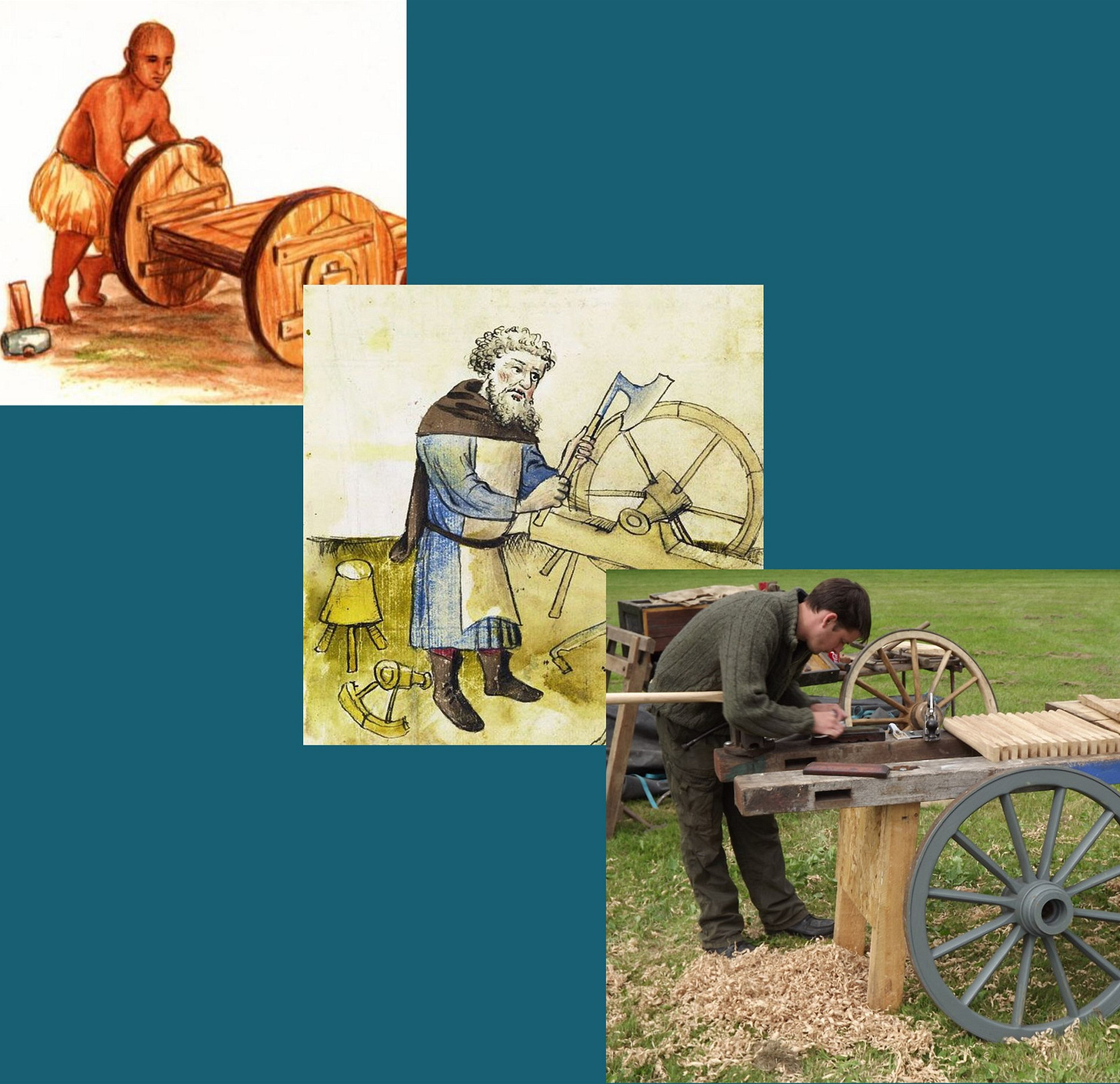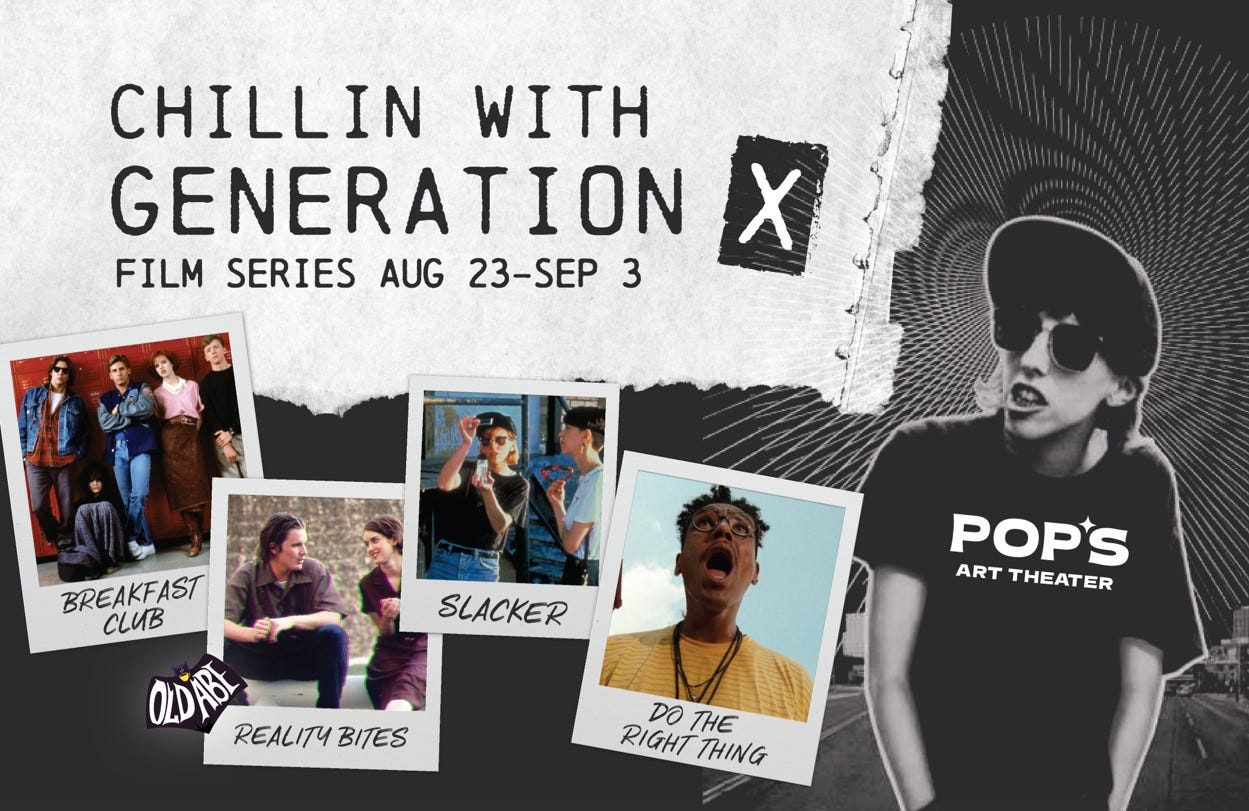Downstream from Reality
Replacing clear life paths with college roulette opened new mass socio-cultural spaces
Faig Ahmed, Siddharta Gautama, 2017, handmade wool carpet, Currier Museum of Art, Manchester, NH
The recent posting interruption is a good excuse to take stock of the regular themes. A big CLI/NPC two-parter just wrapped. The Script is on pause until something conclusive shakes out. There’s loss of momentum and the feel that pieces are moving geopolitically behind the scenes. Tracking includes being comfortable with suspended uncertainty. There’s an instinct to jump for an answer, even when one isn’t definite. Like seeing faces in clouds. Practice withholding judgment when gathering information. Pattern recognition, not an experiment to confirm a hypothesis.
It’s been a while for socialization and status as well. I’m not an expert and need something to trigger relevant thoughts or reflections. Something like the oral history/roots of Clown theme. Because that created a totally new socio-culture.
This topic has meandered because Substack posts are short and a lot of pieces are in play. Specific preconditions were needed to produce the real social pattern that became the “Gen X slacker” archetype. I do realize that was a media figment. But media distortion is more subtle than a [pre-scripted] vs. [organic] either/or false binary. It serves narrative in both ways at once.
Lots of sites cover the obvious top-down base code programming stuff in media. It’s no mystery anymore that screens are always promoting social outcomes. Reactive framing gets less coverage. That’s where something legitimately organic gets repackaged into something favorable to the House of Lies. The slacker is a good example. A positive shine on the first wave of Clown World victims.
Stanhope Alexander Forbes, Champagne and Playing Cards, 1913, oil on canvas
Two major pieces to this theme are how financialization and centralization fundamentally changed the clear paths organic socio-culture rested on. The last post noted how [everyone goes to college] became the answer to the acceptable standard of living question. And that created a divide between leaving or staying in the NUC. It really seemed existential on the base code level growing up in that frame. An acceptable life or Loserville is only slightly exaggerated. But I didn’t emphasize how big a deal turning the future into a crapshoot was socio-culturally.
“Success” was framed in totally personal terms. Because of course it was - the parental lodestones charting this course were boomers. Bigger picture, there was no good option. Staying → the downward ride to the present. Leaving → the atomization and consumption train. A game where neither pathway wins.
Jacob Peter Gowy, The Fall of Icarus, 1635-7, oil on canvas, Museo del Prado, Madrid
Anyhow, regarding everyone goes to college. Younger readers will note the shortsightedness of building strategy around assuming one point on a downward slide is [how things are]. Time is real. It was apparent to me that the trajectory was terminal at the time. But no one seemed to care. A mass switch less than a generation old was treated as natural law. Hedonism kind of made sense given inevitable systemic collapse, mass retardation, and no ontology beyond materialism.
Looking back, the problem is obvious. Everyone going to college wasn’t a clear path to anything in particular. Consider how historically singular it was.
Continuity was the lifeblood of sustainable organic community. One generation stepping in for the next. Conditions change over time and people come and go, but some sort of stable structure is constant. For most of human history, this meant most had a good idea what they’d be doing. The Stay in the NUC group had clear paths go poof. But so did the Everyone Goes to College group. Whether spamming scores of applications to Wall St. or washing up back home, no one knew what they’d be doing, let alone where. Not counting the grad-pro school group who were applying for another chance to apply.
This is obviously more than just economics. It’s impossible to start life when you don’t even know where you’re going to be. And rents were still cheap and we were young and beautiful. At any point, jumping off into Singles years was possible. Service work and maybe back to school. “Slacking” needs space and time - two things clear paths remove from the cultural unconscious. Nowhere to go didn’t exist as a possibility pre-Clown. Everyone goes to college replaced that flow with a long-term crap shoot.
Ivan Aivazovsky, Columbus' Farewell before Starting on his Voyage from Port Palos in Spain, 1892, oil on canvas
Obviously, people have always moved. The American posterity were from England. Even the natives migrated here from somewhere else. It’s healthy to have a little internal churn and some people fit better elsewhere. But in general, clear paths allowed most who wanted it to have an acceptable life in their home region. Now they suddenly pointed at years of schooling in a random discipline before hitting “the job market”. If it didn’t work out … well … back home. Or working a resort town or teaching English in some random country.
Something may work out. But nothing culturally sustainable.
The slacker is the media archetype that normalized clear paths suddenly disappearing. An early form of that [spew venom at systemic victims] reaction younger readers all know. Boomers don’t have a choice about doing that. As infantile and solipsistic as they are, there’s enough self-awareness to want to feel moral. As long as they can pretend the Clown teat is made of bootstraps, they can blame their children for betraying heritage and burning the seed corn.
Gen X was higher on the decline curve so the [loser in the parent’s basement] archetype hadn’t come up yet. Living was more affordable. It was the clear life path had been centralized, financialized, and outsourced out of the NUC. “Slacking” was not walking into a boomer candyland that didn’t exist anymore. Firm handshake notwithstanding.
Valentine Walter Bromley, The De'il awa wi the Exciseman, 1870, oil on canvas
To no one’s surprise, it proved a Faustian bargain. Of course it’s easy to portray organic culture as boring and backward. Source: media. Keep ‘em down on the farm and so forth. And everybody goes to college does open up a world of choices. But options come at cost. Not everyone gets what they dream of. The beast needs a churn pool of fungible units. And if you fall off the beast-go-round … Roger Waters called it with his “nation of waitresses and waiters” line from Radio KAOS. But rent was cheap. So the Singles cultural template was affordable. And like with any organic culture, status markers follow.
Put another way, early Clown wasn’t a chicken or the egg situation. No one grew up on dreams of living like college students in our primes. There was no affluent comfort path that we passed on for Xtreme sports and indy rock. Vaporizing clear paths into a centralized, financialized churn pool made a new mass socio-culture inevitable.
Time when it was relevant - 1990 and 1997
So two considerations. Something for beast media to invert and project back. Diminished opportunity as cool choice, not reacting organically to socio-cultural collapse. At least when they noticed us. Not that it mattered, because it really was an organic circumstance if caught in it. And as with any circumstances, organic socialization followed. We didn’t choose it, but we could choose how to manage it. Similar pattern to the one in the Dazed and Confused posts - where the circumstances are arbitrary and contrived but the socio-culture that forms is organic.
The problem was that it was dyscivic. But that’s the next post.














Thank you John.
Gen X were the big kids when I grew up and now are most my bosses now, this is a helpful contemplation.
It is similar for the Ys. Trying to make "experiences" what they love, because they cant afford anything else.
Early 80s kid, right on the line of X and Y still feels like part of the world I grew up in was a figmemt of imagination.
At the same time, doing what I can to givd my kids the town Amish experience. Lots of books, good music, analog inputs. Also trying to teach them to actually use computers, as a tool and not a black screen of doom.
Unsure college will have any relevance to my kids, and I plan to put everything into them, to establish the next generation.
The hard part for those who don't live by the system--because we don't want to die by it--is that the system still provides the illusion of a promised path. I'm graduating my second homeschooled student, and we're looking at all the possibilities, starting with a gap year to work and save and figure out what's next, if anything. The obvious paths (college, military) are all so streamlined for service to the Beast that it's hard to know what to do.
Everybody else is so proud to be throwing their 18yo into the maw of the debt-monster they call college, as if the child had accomplished something already. We're just (like you put it) embracing Loserville until a path opens up. We've got some smart, learned kids here, and there's hardly a place for them to go that doesn't compromise what they know to be true of themselves and God and reality. Fortunately, God knows where they're all going. But I? Not a clue. We just don't have the social structure to support the choices we've made. But we couldn't make any other choices with a clear conscience.